Photos by Kiki Vassilakis
“I want you to hear this,” says Earl Thorpe, 82, motioning for his teenage grandson Noah to sit beside him in his daughter’s northern Albany home. The pair have had an unusual opportunity to bond over the last few months. Earl has spent some time here as his wife convalesces from an illness.
Noah’s been home from school with a broken leg from a slip he sustained while getting out of a car on his return home from bone spur surgery. Noah gets around with a walker but still manages, like most kids his age, to keep his cell phone hovering near his face. It’s hard to call a situation like that good luck, but it’s afforded him the opportunity to get to know a man who has more than a few stories to tell.
Noah glazes over a bit, headphones on his ears as he taps away and Thorpe exchanges pleasantries with a visitor. Conversation quickly turns to The Fidelitys, a doo-wop group Thorpe founded in Albany in 1956. The group was signed to a management deal with Universal Attractions and began recording singles.
’We left in ’58. And we worked out of Universal Attraction, you know, with James Brown, The Coasters, The Edsels, The Flamingos, Fats Domino and blues singers like Jackie Wilson, Low Willy John, Nappy Brown and Big Maybelle. In fact, our first job was with Big Maybelle in Hackensack, New Jersey. That was 1958.”
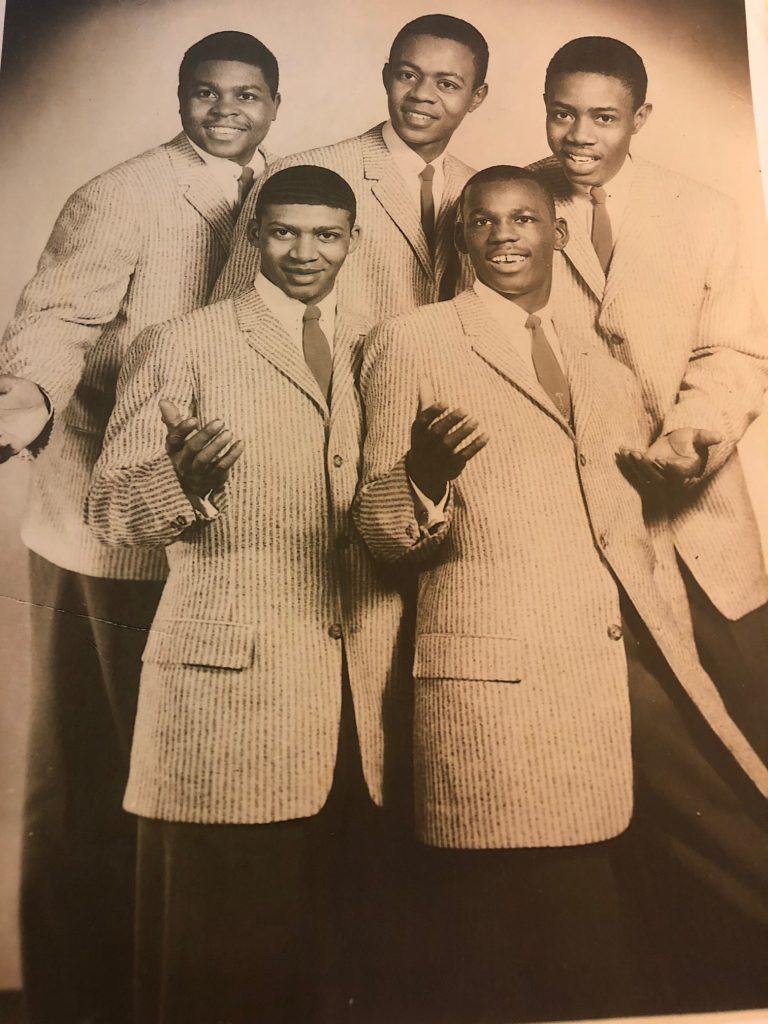
“You never told me this!” Noah exclaims, looking up and loosening the grip on his phone.
“I know. That’s why I wanted you to be here. So you will know it. So you’ll hear it. Right, right, right!” Thorpe nods like he and Noah are bandmates and they’ve finally found the rhythm. “So that’s why I’m always telling you about playing an instrument!”
Noah laughs, shaking his head.
“I’m not kidding. My mother taught me that if you know how to sing you’ll always be able to make some money.”
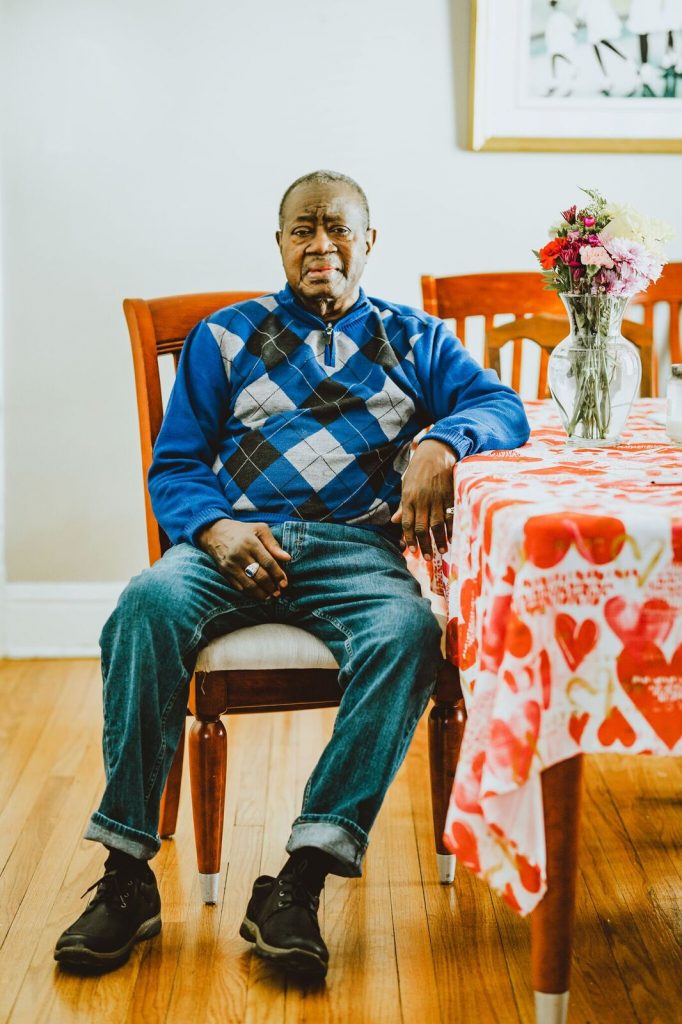
Founding The Fidelitys
Thorpe’s musical legacy runs deep. Thorpe founded The Fidelitys after relocating to Albany from Florida. His cousin Emmitt Smith was lead vocalist; the group included Clarence Carter and Robert McCann (tenors) and Arthur Morning (baritone). Another cousin, Maurice Newtown, eventually replaced Carter.
In December 1957 the group ventured to New York City hoping to play the legendary Apollo Theater’s amateur showcase. They didn’t play, but they did find a manager who got them an audition with booking agent Ben Bart of Universal Attractions, who finagled an audition with Baton Records. They were signed immediately.
A series of singles and stints at The Apollo followed in rapid succession. The band toured relentlessly and, as Thorpe recounted, they played on bills with legends like Etta James.
Racism on the Road
As glamorous as it might sound, this was still the age of segregation, Jim Crow and an America where racism was expected and accepted.
Thorpe vividly recalls the sting of racism.
“We came out of Philadelphia and we went to a place called Ambridge, Pennsylvania,” he recounts. “That’s across the state. So we’re exhausted. It’s a long, long trip. We got there, we had a hit record at the time. And I ask the producer ‛What hotel are you putting us up in?’ He said, ‛Oh, no, you’re not in a hotel.’ He says, ‛There’s a rooming house that we put the acts up in. Little Anthony was here last week.’”
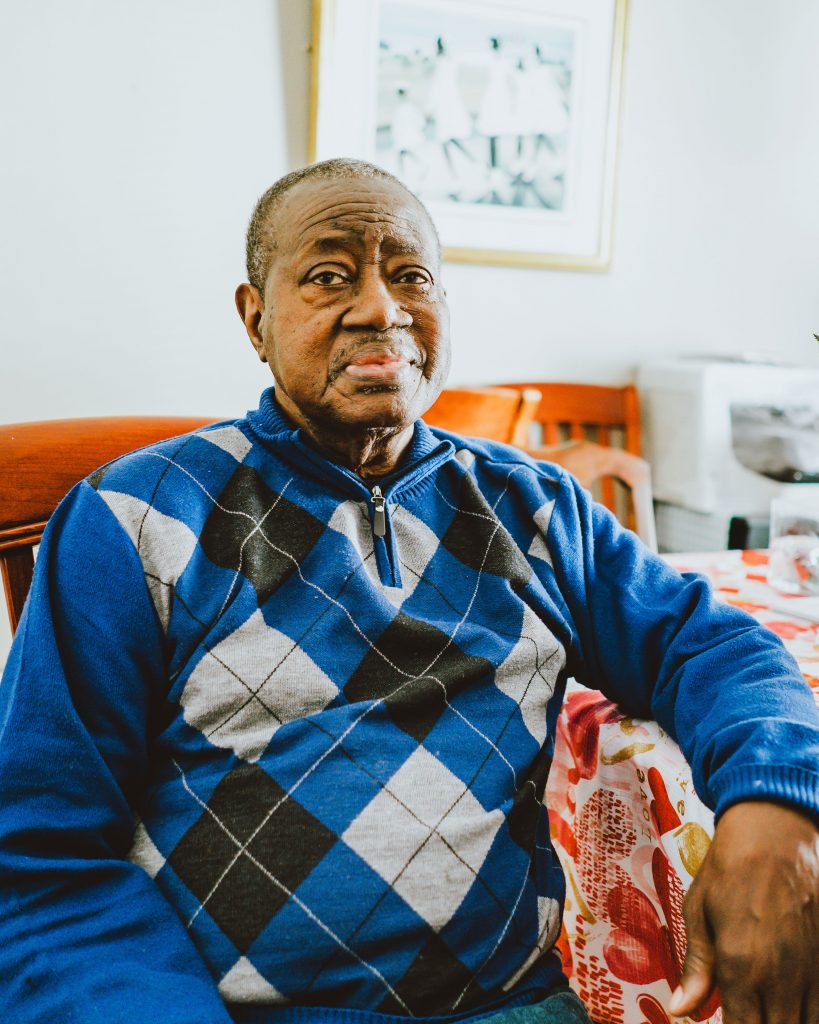
In the next town, they arrived at a hotel the next night and could see “plenty of keys on the rack” indicating there were open rooms, but they were turned away. “So you lived it, you know?” Thorpe says.
Noah is still paying attention to his grandfather’s story.
The reporter asks, “How much do you think racism impacted your career as a musician? How much did it impact The Fidelitys?”
Thorpe pauses and then recalls his interactions with “American Bandstand” host Dick Clark. The group played the show three times and he recalls being treated with disdain. Thorpe’s message: The guy at the top couldn’t treat us as human, so how far could we possibly go?
Baton Records closed in 1959. The group had released three singles with the imprint–the second “Memories of You” reached 60 on the Billboard Chart.
The band signed with SIR shortly after and issued a few singles that made little impact on radio. They continued playing shows throughout the ’60s and then disbanded. Three surviving members reunited in 2005 to play a few gigs around Albany. Thorpe continues performing doo-wop with The Heavenly Echoes across the Capital Region.
The vibrant part of Thorpe’s musical career came to end with the close of the ’60s, but a vital part of his legacy was in full swing.
Thorpe was working in construction and married, growing a family that would eventually grow to four children–three girls and one boy.
Enter The Brothers
In 1966, six months before the formation of The Black Panthers, Thorpe and a number of his friends found themselves frozen out of a construction job. In response, they founded The Brothers, a group dedicated to fighting to end job discrimination and practices of the Albany political machine that left black neighborhoods without basic services like garbage removal and housing.
Thorpe was one of the core 15 members. “We did what we had to do,” he recalls. “There was no jobs so we picketed the union halls, we picketed the mayor and we fought for better housing.” Noah nods, saying “Hmm” in agreement.
“We fought for everything you can name,” Thorpe says. “We fought Schaefer Brewery because they wasn’t hiring us. They came out with their trucks in the city and we came out with spray cans and sprayed the windows so they couldn’t get out.”
The action made Schaefer pay attention and they sent a black representative to speak to the group. “We said, ’Bill Schaefer isn’t black. We want to see Bill Schaefer.’ And he came to see us. So you know if you make a big enough wave, people pay attention.”
William Kennedy, in his 1983 book “O Albany!: Improbable City of Political Wizards, Fearless Ethnics, Spectacular, Aristocrats, Splendid Nobodies, and Underrated Scoundrels, details the waves the group made, including protesting a $5 trash pickup fee by dumping piles of garbage at City Hall, opening a free clinic staffed by volunteer doctors that only closed when the members could no longer pay the rent, picketing work sites that employed no blacks, picketing landlords who wouldn’t address squalid conditions, dumping cockroaches on the desk of a slumlord.
They actively discouraged black voters from accepting the $5 members of the Albany Machine would offer in exchange for their vote for the “right” candidate. They ran their own candidates over the machine’s and openly feuded with the local chapter of the NAACP. They even published their own newspaper, The Albany Liberator, which exposed racism in public housing. It also covered the civil rights movement across the country. Starting as a weekly in 1967, the paper eventually published biweekly and ceased publication in 1971.
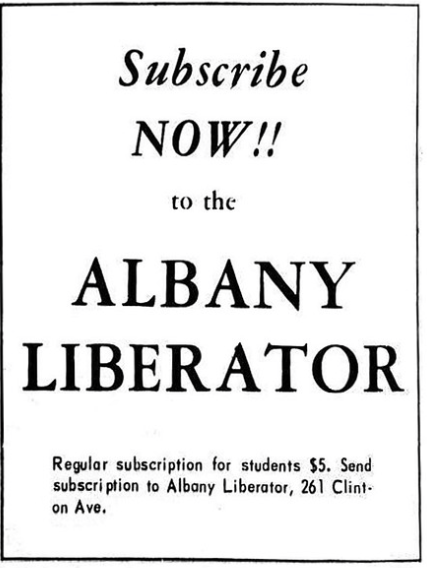
Backlash
The city didn’t leave their actions unpunished. Members of the group were arrested. Their headquarters at Nebbie’s Shoe Shine Shop at 170 North Pearl St. near The Palace Theatre was repeatedly vandalized, shot at and marked with racist graffiti. Eventually the New York State Police tapped the headquarters’ phones and members were photographed and surveilled.
With each defeat or arrest, the group became “more militant,” Kennedy wrote. Through interviews with members, Kennedy posits that police harassment lead The Brothers to ratchet up their rhetoric, which in turn led to more harassment and the need for more bail money which drained their budget to do things like fund their health clinic. Around 1970, the group was fractured and at odds with itself.
When Kennedy caught up to one of the group’s original founders, Leon VanDyke in 1971, things looked bleak. Leon was “broke” but still publishing The Liberator. He lamented the group’s use of violent rhetoric that he says lead to infighting. Kennedy took VanDyke for a walk through Arbor Hill.
“Our young are on drugs and alcohol and the elders are selling it. It’s a death camp. I come down here to pass out The Liberator and it’s like walking through a concentration camp. It’s getting close, that spirit to resist is dead. People have almost accepted there is no hope. That decay in spirit, it can’t help but affect you. You want to escape to save your own self.”
Thorpe says he was arrested three times but he’d taken profits earned with the Fidelitys and invested in various properties that he was then able to put up as bail. The financial cost wasn’t crippling for him. However, he notes that the support system of local clergy that woul
A Look Back
Does Thorpe look at the actions he and his friends took and look back fondly? Is there a sense of futility looking at how little has changed?
“You see what you did, sometimes you would tear up. It’s only normal,” says Thorpe. “It’s a normal reaction to see where you’ve been and where you are today. But there, there is a little touchy situation there where you look and say, ’Wow, I did that then and where are we today?’ Where are we? You know what I mean? Here. That’s always in the back of your mind. We did that. Where are we now? It was good but we’re going back now with this guy who is in the office. He’s dividing and conquering too. He’s separating the United States. He’s got to get you separate. You know what I mean?” asks Thorpe.
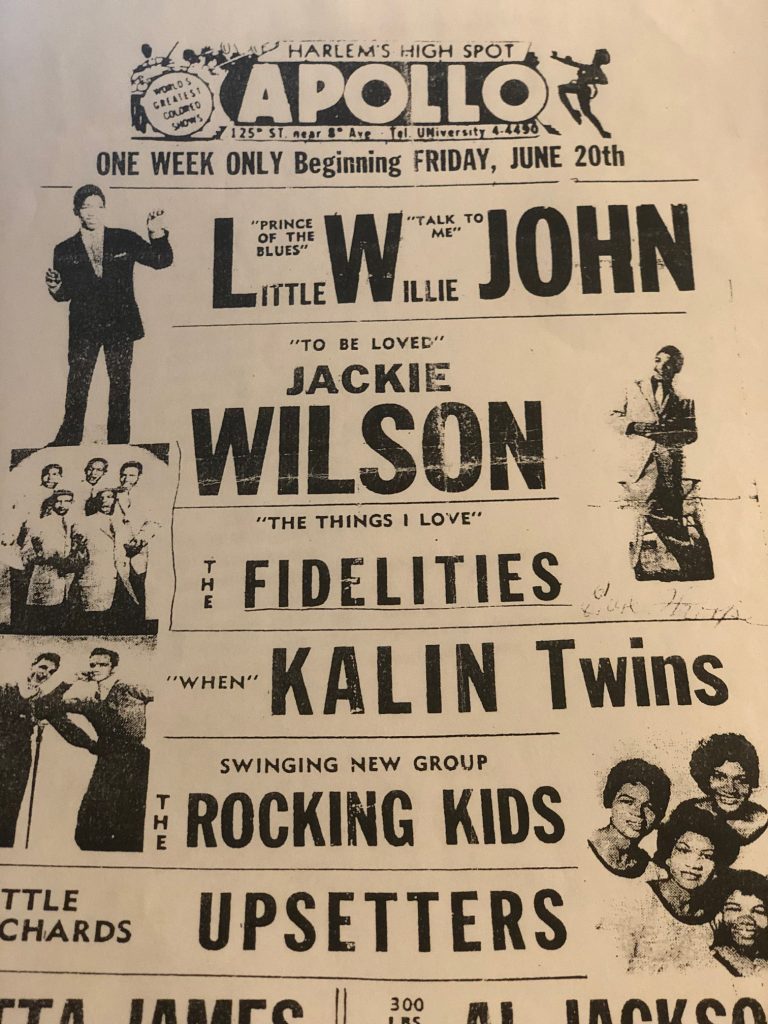
Noah nods and agrees “Mmm hmm.”
Thorpe looks down and this seems to be one of those moments. Noah gazes at him, his eyes filled with concern.
Thorpe looks back up, a defiant look in his eyes. “I knew what it was about then. And I wasn’t having fear. I wasn’t having none of that. See if you’re scared, then you ain’t going no place.”
The Fidelitys will be inducted into The Eddies Hall of Fame at Universal Preservation Hall in Saratoga on March 9. The Eddies Awards will be held on April 5 at Proctors.

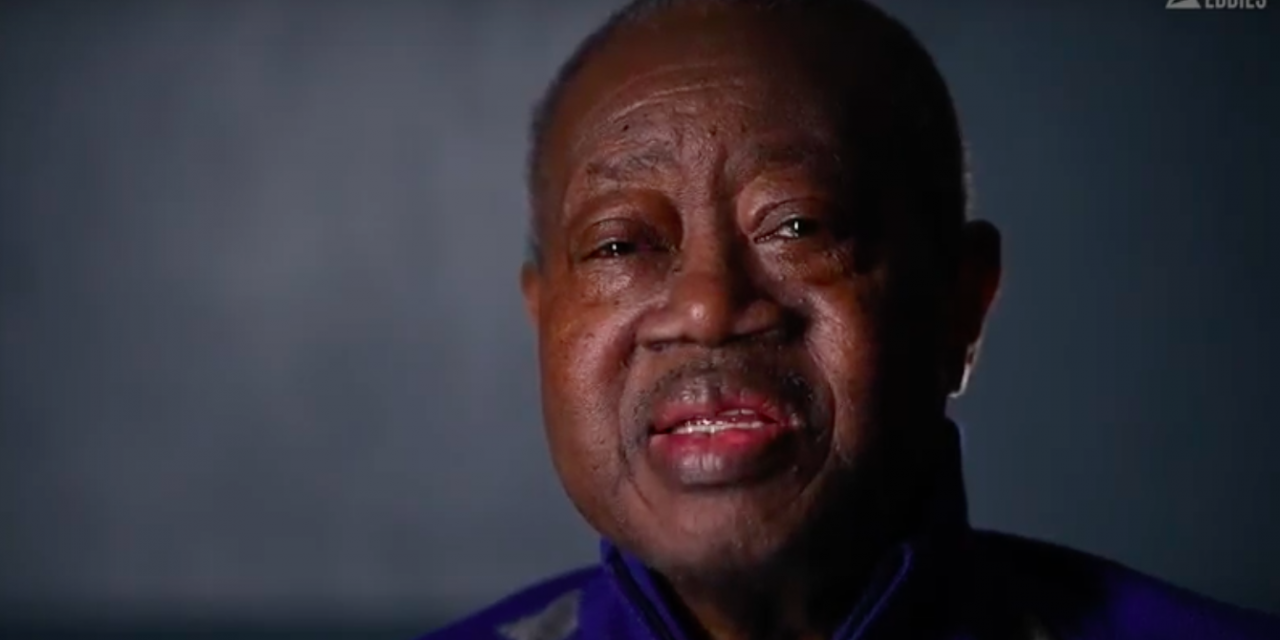
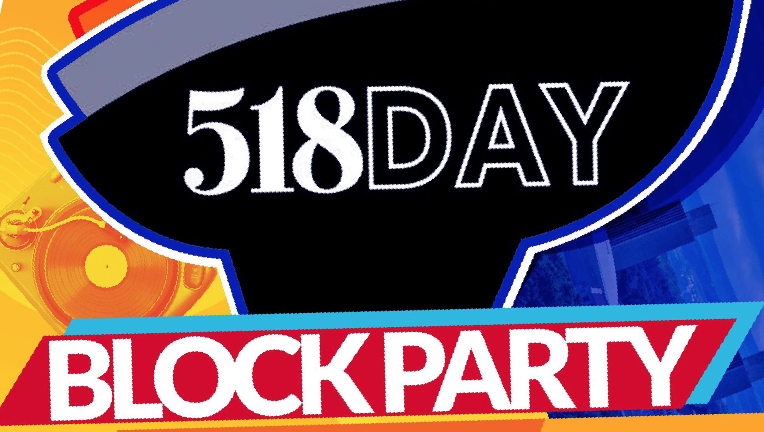
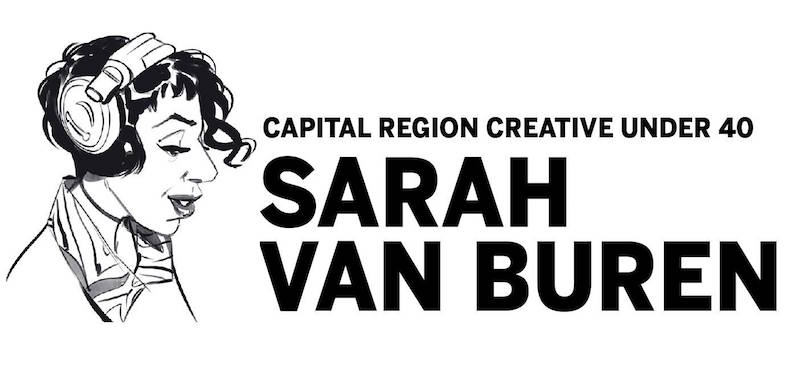
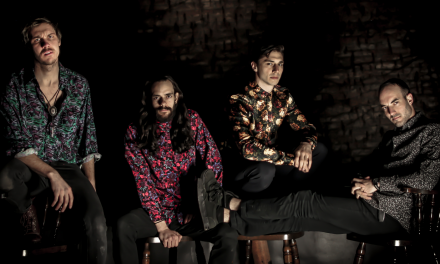
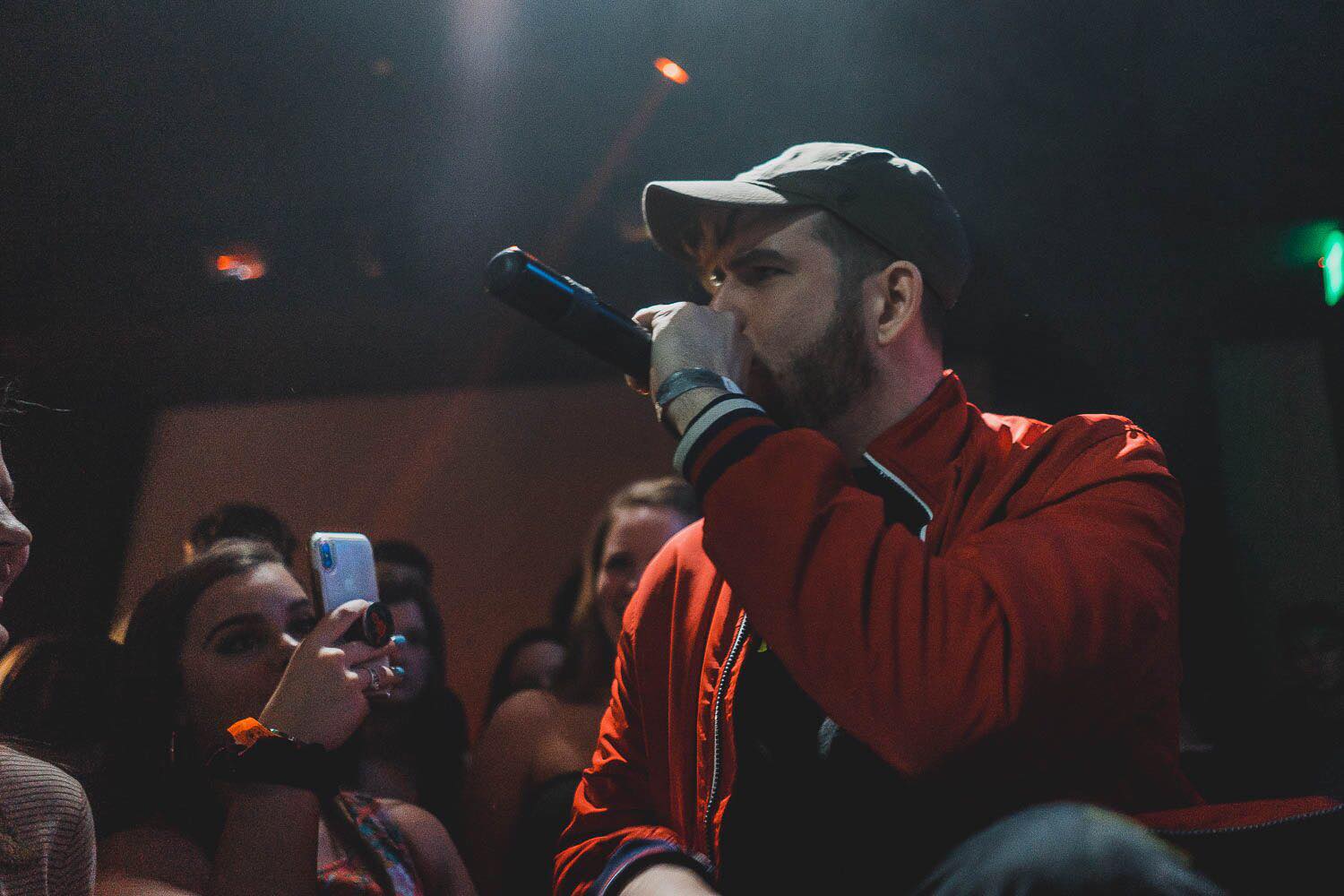
Deacon Thorpe thank you for your service to God and his people. You truly are a living legend. God bless you.
Hey cousin Earl,I was just reading an article about you that cousin Nadlie sent my sister Roslyn…proud of you,Eric
Knowing that you did what you could when you could is enough to leave a mark in life while you lived.